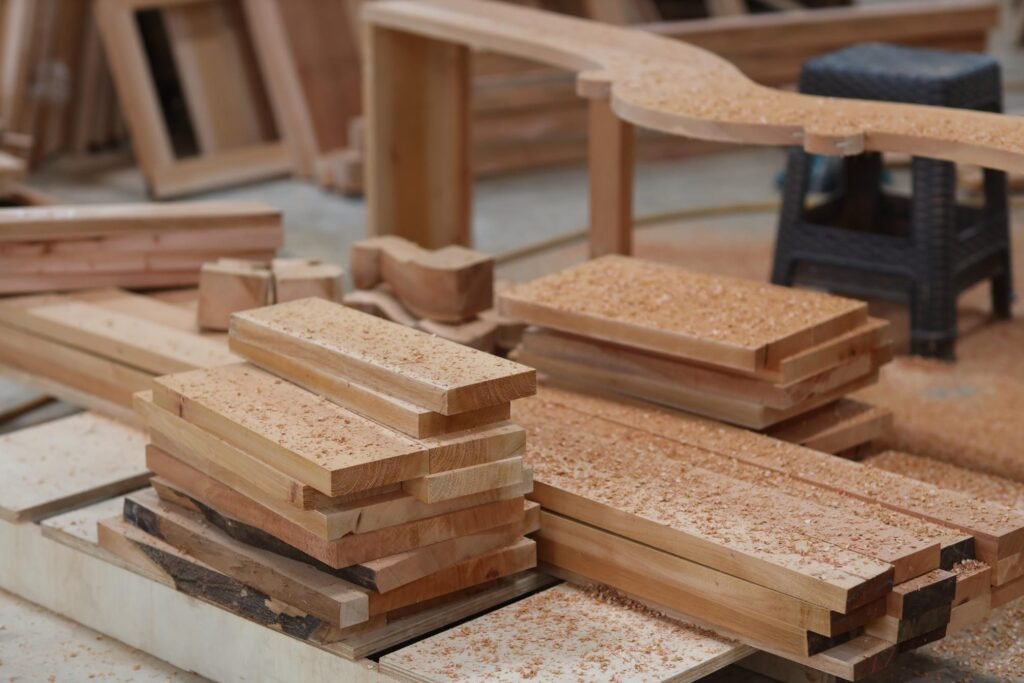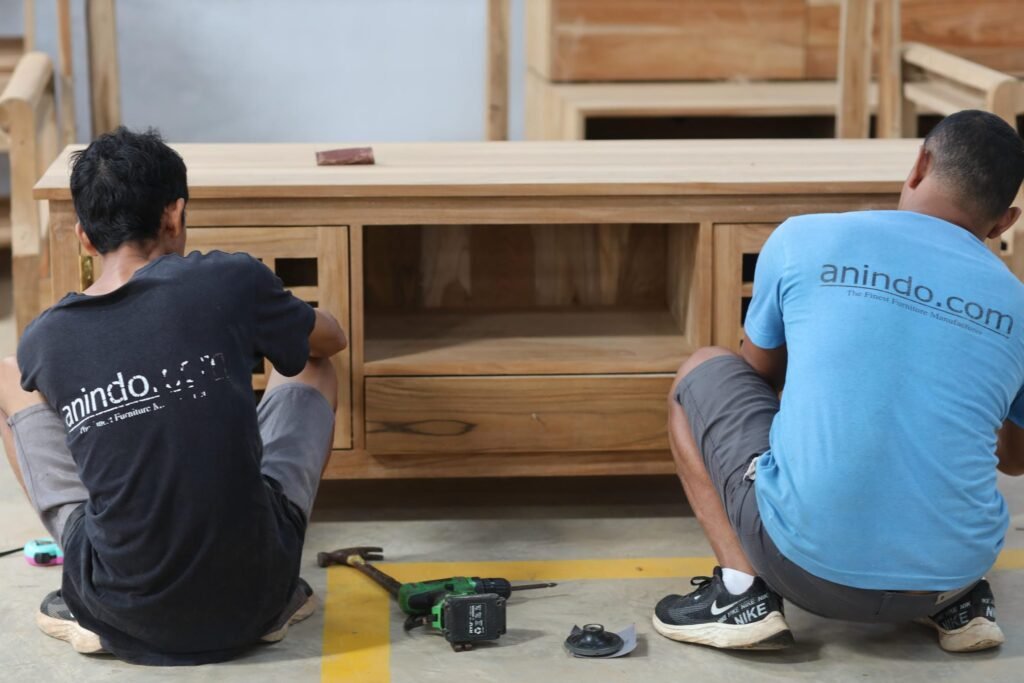PROCESS - ASSEMBLY OPERATION
What is Assembly Operation
Assembly is the process where we carefully join the precisely cut components (from the Component Production phase) into a complete piece of furniture
This is where craftsmanship meets function—where screws, bolts, dowels, and adhesives turn individual parts into resilient, long-lasting furniture
Why is Assembly Important
Proper assembly ensures your furniture is not just assembled, but engineered for longevity and safety
It prevents weak joints that could lead to wobbles or breakdowns over time
By focusing on strong connections, we minimize defects like loose fittings or structural failures, delivering products that withstand daily use while maintaining aesthetic appeal
Plus, our rigorous stress testing verifies that each assembled item can handle real-world pressures, giving you confidence in quality.
How Does ASSEMBLY OPERATION Work?

Step 1: Component Preparation and Layout
What: Sorting and organizing components into a dedicated workspace
Why: Ensures every part fits perfectly during assembly, avoiding errors
How: Technicians use jigs, guides, and measurement tools to verify alignment
Outcome: Accurate alignment of parts

Step 2: Joinery and Fastening
What: Connecting components using joints, fasteners, and adhesives
Why: Creates strong, durable bonds for structural integrity
How:
- Dowels, mortise-and-tenon joints, or mechanical fasteners (screws/clamps)
- Adhesives applied with precision + clamps/presses
- Skilled workers use hand tools + semi-automated presses
Outcome: Robust, adaptable bonds, whether simple frames or intricate designs

Step 3: Sub-Assembly and Full Construction
What: Building smaller sections (e.g., chair backs) before integrating them into the final product
Why: Speeds up production while ensuring structural integrity
How:
- Modular assembly (smaller pieces first)
- Alignment tools (e.g., squares, levels) to maintain straightness
Outcome: Straight, balanced, and structurally sound furniture
